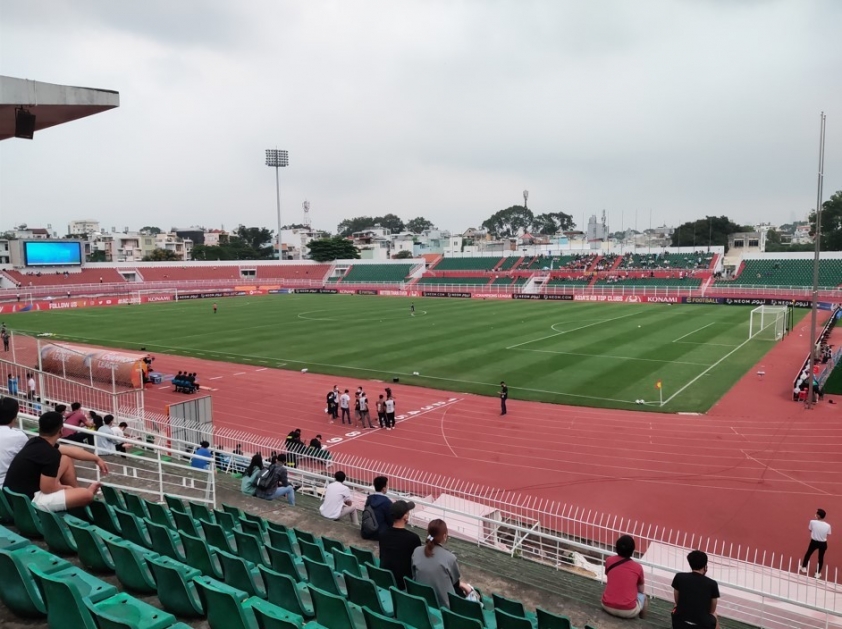The Vietnam National Team's home stadium is about to undergo a transformation with a massive investment package of 149 billion VND.
Thong Nhat Stadium (Ho Chi Minh City) will soon receive a full renovation backed by a 149 billion VND investment, targeting its development into a state-of-the-art sports facility compliant with national and international criteria.
After years of deterioration and overuse, Thong Nhat Stadium (District 10, Ho Chi Minh City), one of Vietnam’s oldest sports landmarks, is preparing for a major overhaul with a total investment of up to 149 billion VND. The project aims to establish a modern sports center that meets national and international competition standards.
Currently serving as Ho Chi Minh City's main competition venue, Thong Nhat Stadium has seriously declined after decades of use. Poor drainage causes frequent surface and track damage after rain, the grass field is overstressed due to multiple football teams using it, and Stand B has been closed since 2021 because of large cracks posing safety risks.

After several partial repairs, the stadium’s capacity has dropped to about 14,400 seats—a modest figure compared to the needs for hosting large-scale sports events. According to the Management Board of Civil and Industrial Construction Projects in Ho Chi Minh City (Ban DDCN), this upgrade project holds strategic importance to modernize sports infrastructure, support high-performance athlete training, and enhance the ability to organize major tournaments.
The main components of the project include: complete renovation of stands A, C, and D; construction of new stands B, C1, and D1 with three floors; upgrading the grass field and athletics track to national standards; along with auxiliary systems such as lighting, wastewater treatment, lightning protection, and drainage. Upon completion, the stadium’s capacity is expected to increase to about 19,000 seats, better meeting fans’ demands.

Initially, the project was planned to start in early 2025 and finish by the end of 2025 to serve the 10th National Sports Festival in 2026. However, due to ongoing adjustments in planning procedures and pending investment approvals, the start date may be postponed until November 2025, aiming for full completion by early 2027.
The renovation of Thong Nhat Stadium is not only significant for sports but also contributes to upgrading urban infrastructure, improving community life, and preserving the historical value of this iconic Ho Chi Minh City landmark. Once finished, the stadium promises a complete transformation—modern, safe, and befitting the status of the country’s largest city.


Wonderfulshortvideo
Stones 🤝 Gordon 😮💨


Can Esme beat Ella? 👀😂


"It's strange. Very, very strange" 🤔


Cristiano Ronaldo super GOAL


Maddest football picture I’ve ever seen 😂


User VictoryVox has posted a video.


In need of a padamei, any going?








 Links
Links
 Contact
Contact
 App
App


